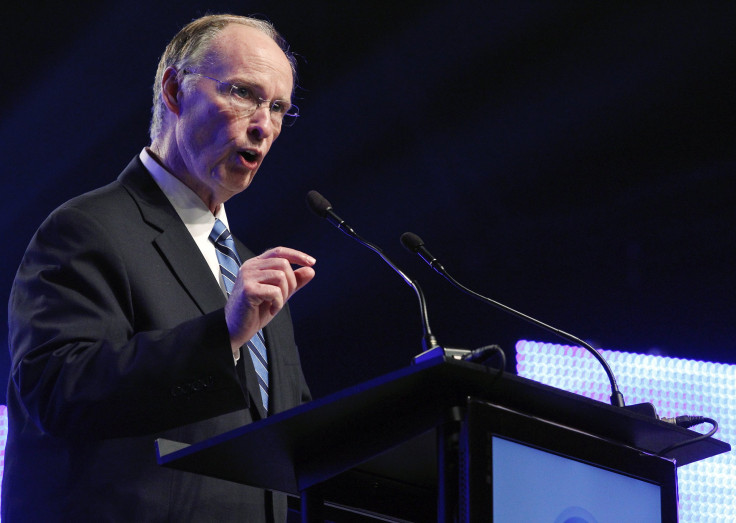Alabama Governor Scandal: Mistress Affair Could Lead Robert J. Bentley To Prosecution

Alabama Gov. Robert J. Bentley could face criminal prosecution following a state ethics panel ruling Wednesday that there might be a probable cause of infringement of ethics and campaign finance law by Bentley for his involvement in a sex-tinged scandal for over a year.
The Alabama Ethics Commission voted Wednesday to refer four issues to the district attorney's office for which the latter would decide whether to levy charges for a possible prosecution. The commission found probable cause that the 74-year-old governor used campaign money for personal reasons when he was not a candidate, illegally accepted a campaign donation and misused campaign funds and other state resources.
Bentley admitted that he made personal mistakes, but he did not accept the commission's findings and asserted he did nothing illegal. The commission is expected to conduct further investigations on the matter on Wednesday.
Bentley's attorney Bill Athanas defended the governor. "We disagree strongly with the result, but I think it is important to keep in mind that it is a finding of probable cause, not finding of a violation. ... The battle goes on," Athanas said. Athanas also mentioned that he would talk to prosecutors and said there was no basis for the charges, according to New York Times.
Bentley has been facing accusations and questions after recordings of phone calls surfaced a year ago of him making suggestive sexually charged remarks to a female aide before his divorce. State Auditor Jim Zeigler filed an ethics complaint against the Republican governor and accused him of misusing state resources for a relationship with the aide. Rebekah Caldwell Mason, the female aide, resigned soon after the recordings came to light.
Zeigler supported the commission's decision, but also highlighted that it was "only the first step."
"I am pleased that the governor is going to finally face accountability and sad for the state of Alabama that we've had to go through this the last year-and-a-half," he said, according to ABC News.
A former dermatologist and Baptist deacon, Bentley became governor in 2010 with his "nice guy" image. He won re-election in 2014 by a stark margin, however, after the scandal his popularity decreased and degraded his reputation.
The commission's action came almost a year after the surfacing of the recordings, in which Bentley could be heard telling a woman, "I worry about loving you so much," and spoke about touching her breasts.
In a press conference following the emergence of the scandal, the governor tried to convince his voters that he had done nothing illegal, but committed personal mistakes for which he apologized to his family and the state.
"I made a mistake. Two years ago, I made a mistake," Bentley said last year, according to the Associated Press.
© Copyright IBTimes 2025. All rights reserved.






















